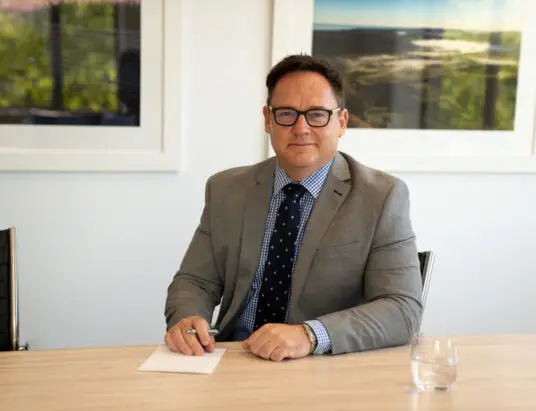Recently I had the pleasure of traveling around New Zealand with economic commentator and journalist Bernard Hickey’ where we have been presenting to AdviceFirst clients and local professionals about themes important to today.
We have also been joined by fund managers Fergus MacDonald of Nikko Asset Management and Craig Stent of Harbour Asset Management. Our event series included a Hawke’s Bay leg, at the Black Barn winery. Bernard has been sharing an important message which we think is timely today.
It was the darkest moment of the global recession. September 2008 and financial markets were on the brink of collapse. Economist Bernard Hickey was at a New Zealand Superannuation press conference expecting to learn how the fund was going to protect taxpayers’ money. Instead, what Adrian Orr, who at the time was the CEO of New Zealand Superannuation, said next would leave the economist shocked.
“Everybody was thinking it was end time for global markets,” said Hickey. “Lehman Brothers had collapsed. AIG had collapsed. The US Government was enacting giant bailouts for the banks and car companies. Financial markets had fallen 20 percent. Some people were saying it seemed like the end of capitalism.
“New Zealand superannuation had $14 billion funds under management, and we were on the eve of the new Government halting contributions to this fund. I fully expected Adrian Orr to announce counter measures for hunkering down and sitting it out.
“Instead he called the world a supermarket packed with discounts, and he was getting out the shopping trolley – they were going to run out and buy as much as they could.”
Speaking to the Christchurch leg of AdviceFirst’s Financial Markets Update roadshow, Hickey said that today the New Zealand Superannuation Fund – which has not benefited from any Government contributions for almost a decade – is worth $38 billion.
“The moral of the story is ‘keep calm and carry on’. The NZ Superannuation Fund had a long-term horizon. They knew that volatility is a fact of life and that all ups and downs can be navigated with a good plan and an eye for opportunity – all investors should keep this in mind.”
Hickey said the current volatility, including US President Donald Trump’s tax cuts, big spending and potential trade war with China, shouldn’t be a surprise because periods of peace are always followed by volatility and change.
“More than 250 years ago the invention of steam powered engines precipitated a period of growth and globalisation that ended with World War One. After the Second World War the world trucked along through a period of new technology and rebuilding, until the 1970s when we had the end of the gold standard, two oil shocks and the end of the Cold War.
“But even that period was followed by growth through the 1980s and late 1990s. Growth continues in the long run, particularly when new technology fuels a new surge in productivity.
“We’re now seeing a second industrial revolution that began with Steve Jobs’ introduction of the iPhone in January 2007. Like the steam powered engine, the technology that powers the iPhone is ushering in a new era of growth and globalisation
“This new industrial revolution will create a lot of value for some people, like investors in Netflix and Amazon, so it certainly isn’t time to be assuming it’s the end of the world or that things are going to get worse. If history shows us anything it’s that things always get better in the long run –our real challenge will be the fair distribution of that wealth.”
Hickey’s message?
Don’t be surprised by a return to volatility – decreases always seem more dramatic than increases – and don’t overthink things.
“Like Adrian Orr, learn to look past the headlines and the hype,” he said.



